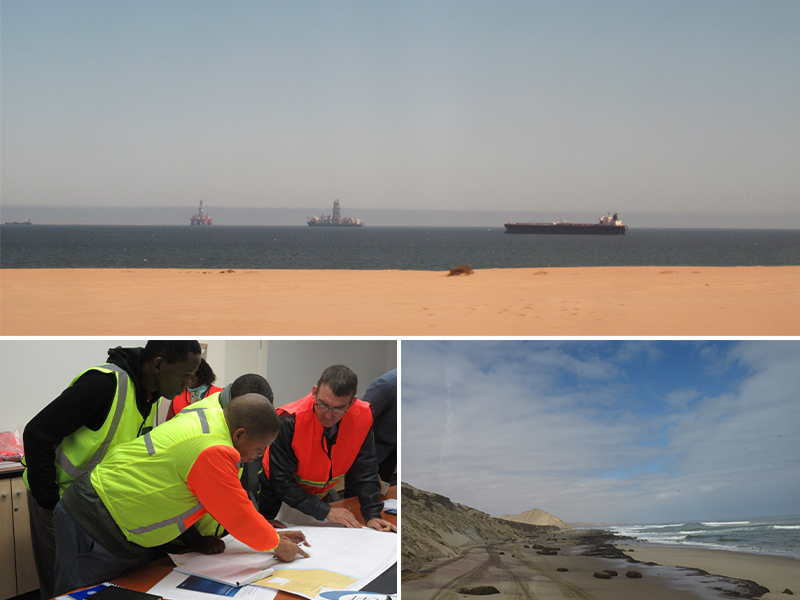A good working relationship with neighbouring countries is key, especially in the event of a trans-boundary oil spill incident. Namibia and Angola undertook a simultaneous cross-boundary oil spill response training exercise (6-9 August), in Luanda, Angola, and Walvis Bay, Namibia.
Both countries' are located in an oil-producing region with heavy maritime traffic, resulting in increased risks of pollution for the vulnerable marine environment. In the event of an oil spill in one country, chances are that it may affect its neighbour as oil spills know no boundary. Regional cooperation is crucial when it comes to oil spill preparedness and response. The International Convention on oil pollution preparedness, response and cooperation (OPRC) specifically encourages such initiatives to foster international cooperation.
The training sought to test communication links between Angola and Namibia and examine the mechanism required to seek assistance and mobilize international resources, in case of an oil-spill incident.
The workshop agreed a set of recommendations for both countries, which will form the basis for a sub-regional oil spill contingency plan.
The event was hosted by the Ministry of works and Transport in Namibia, via its Directorate of Maritime Affairs, and the Ministry of Petroleum and Mineral Resources in Angola. The workshop was supported by GI WACAF, a collaboration between IMO and IPIECA to strengthen oil spill response capacity in west, central and southern Africa
